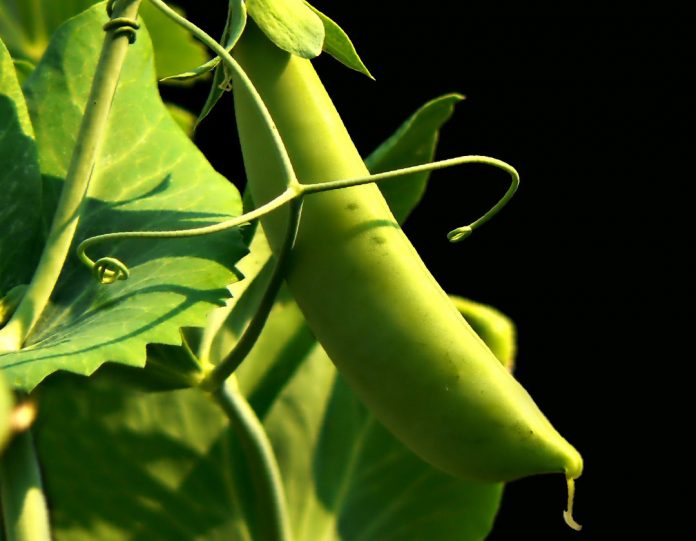Just like a thirsty animal knows to walk toward the sound of a gushing river, a new study shows that plants can listen for the sound of water underground and grow their roots in that direction.
A team led by evolutionary biologist Monica Gagliano at the University of Western Australia demonstrated this uncommon ability in an experiment using pea plants. They planted the seeds in pots shaped like upside-down Y’s. On one of the Y arms, they placed soil. On the other arm, they placed either standing water or water running through a pipe. And the plant always grew its roots toward the water regardless of whether it was easily accessible or hidden inside the tubing.
Scientists previously knew plants could detect changes in humidity in soil to direct their root growth but this study answers the question of how plants could find sources of water when their roots were too far away to directly sense moisture.
In a video release, Gagliano states:
“We know that they’re really good at looking for water by sniffing it using the humidity gradients but sometimes a plant is just too far away from the water source and there are pretty much infinite possibilities of where the plants can direct their roots and they can’t afford to just direct them at random. So how do they know which one is the right direction to go for? What we find is they use the sound. So it gives like a heads up to the plants, ‘Over here! This way!’”
Gagliano also added a twist to the study by growing pea plants with a choice between running water and moist soil. In this case, the plants chose moist soil because it was closer to their ideal conditions for growth. This suggests that while sound might be important for plants to detect water sources from a distance, the plant will rely on moisture gradients for more precise targeting.
Effects of noise pollution on the plant’s hearing ability
The study also pointed out the impact of noise pollution on the plant’s ability to hear water. When researchers added noise to the environment, the pea plants’ ability to choose the optimal root path was hindered.
It’s a reminder of the harmful effects noise pollution is having on other living creatures. We mostly only notice this when it comes to animal behavior like the lack of bird calls in the daytime. But even the plants could be impacted by all the background noise of the city. It’s something the researchers plan to investigate further.
Other sounds plants listen for
This isn’t the only fascinating new discovery to be made in the world of plant biology. One 2014 study previously investigated a plant’s ability to hear their predators. Researchers found the Mousear cress increases production of chemical defenses when it hears the munching sounds of caterpillars.
Similarly, some plants will explode pollen out when it senses the buzz of bees.
It just goes to show how much we’re still learning about the complex characteristics and abilities of various species in the plant world.











